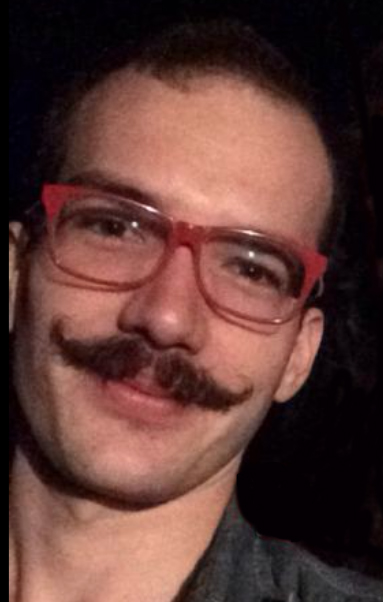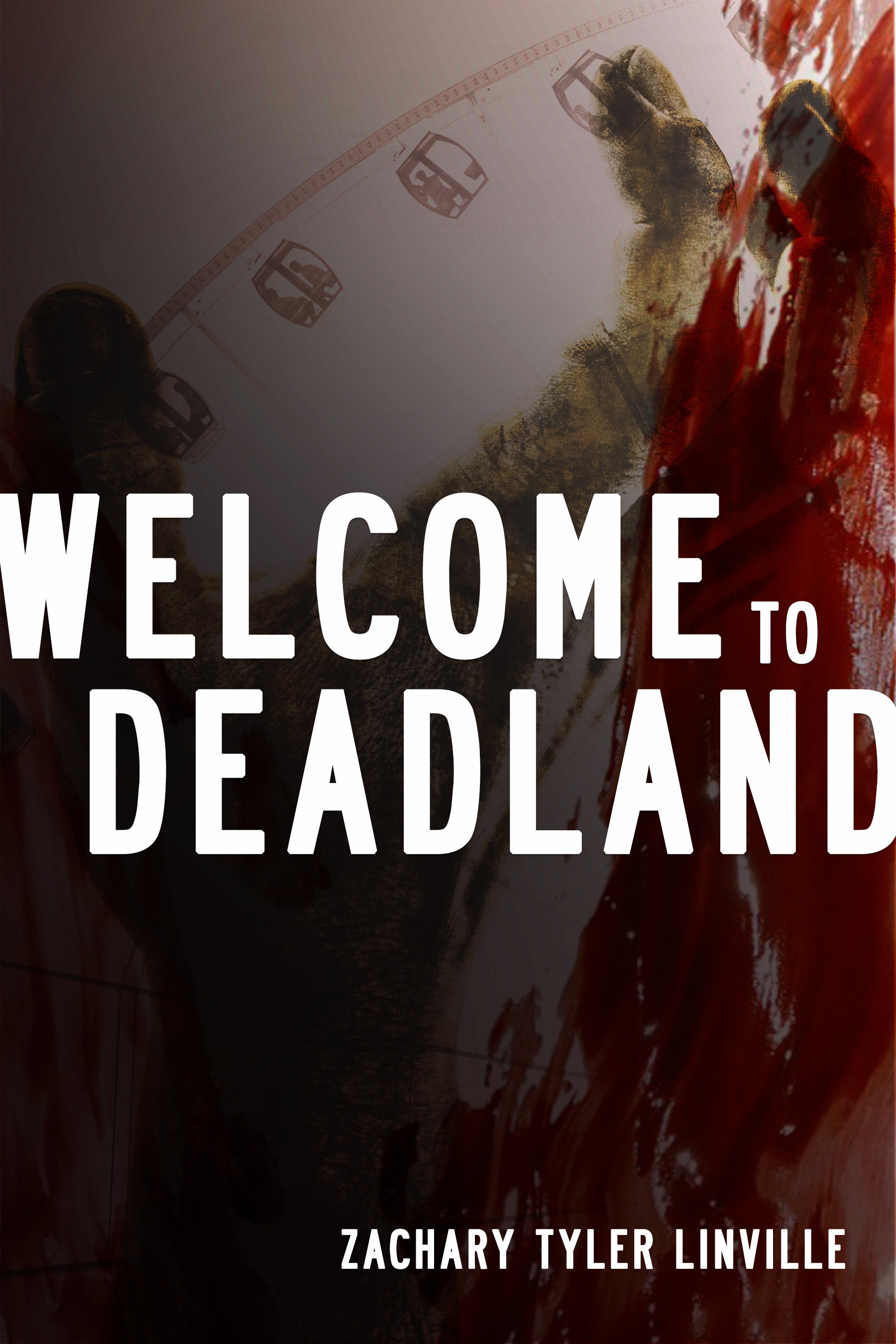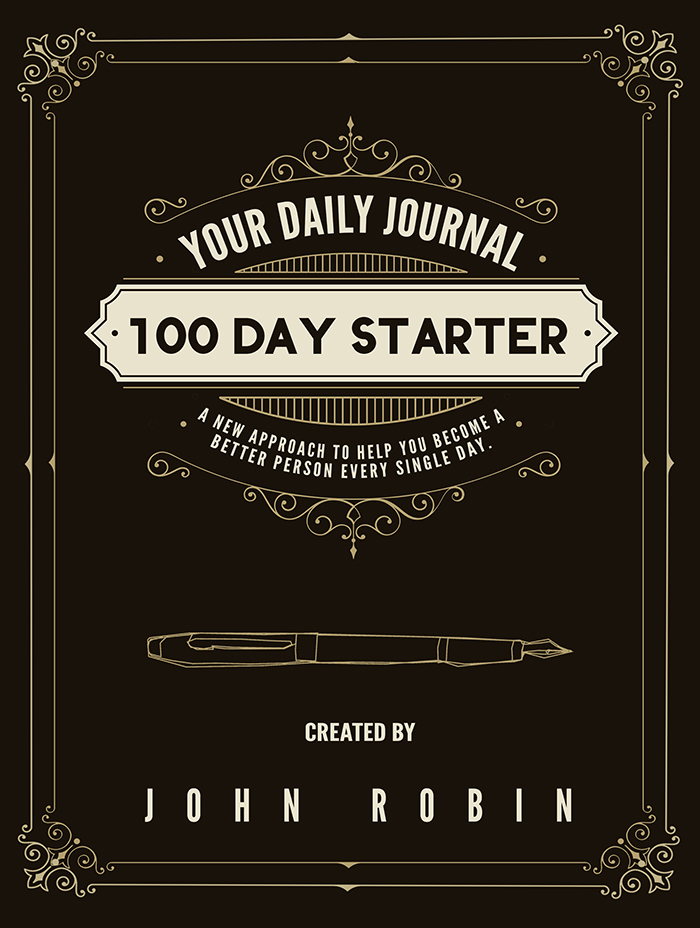In today’s new installment of World Builders, I’m proud to welcome the Zachary Tyler Linville, whose book, Welcome to Deadland is leading the Nerdist Collection Contest with more than 700 copies pre-ordered!
 Zachary Tyler Linville is a graduate from The University of Central Florida (Go Knights!) in Orlando, FL with a Film Degree focused in Screenwriting. After graduation he moved to New York City where he worked in Acquisitions for an Entertainment Agency, as a Venue Coordinator for the TriBeCa Film Festival, and in costuming for multiple films and TV shows including Boardwalk Empire. In 2014 his screenwriting qualified him as a semi-finalist in the Screencraft Fellowship. Zachary currently resides in Atlanta, Georgia where he spends most of his days editing his first novel and playing with his dog, Caroline.
Zachary Tyler Linville is a graduate from The University of Central Florida (Go Knights!) in Orlando, FL with a Film Degree focused in Screenwriting. After graduation he moved to New York City where he worked in Acquisitions for an Entertainment Agency, as a Venue Coordinator for the TriBeCa Film Festival, and in costuming for multiple films and TV shows including Boardwalk Empire. In 2014 his screenwriting qualified him as a semi-finalist in the Screencraft Fellowship. Zachary currently resides in Atlanta, Georgia where he spends most of his days editing his first novel and playing with his dog, Caroline.
Here now are Zachary’s unique perspectives on world building.
What is the appeal of world building to you? How does it compare to the importance of character and plot?
What appeals to me the most about world building is that I get to set the rules. If rules aren’t established and upheld then the story itself will collapse from a lack of believability or limitations. In Welcome To Deadland I break the barrier of our reality by introducing an infection that alters the physicality of those it comes into contact with. The infection is degenerative, so although I’m building this world I know I can succeed in making it connect with readers by showing the degeneration rather than granting the infected new and powerful abilities. World building to me is the foundation of the entire story, without it there isn’t a launching point to begin developing the characters and plot, as they’re intricately involved. The characters and the plot will be motivated by the world they’re set in, and the functionality of their surroundings. However an intriguing world is not enough to hold reader interest, beyond the base of the world characters must be developed that the reader wants to know about, root for, and see overcome the obstacles of the plot.
Describe your world building method. Do you have forms that you fill in? How do you organize your notes? Do you use a wiki or some other software?
I have a medium sized yellow notebook that a really close friend bought me as a birthday present a few years ago, and I have since covered it in stickers of sharks, pizza, pugs, and a howling wolf that I organize all of my notes in. I have color-coded tabs where I keep track of dates, locations, names and plot points. In my world building process the first thing that comes to me is generally the characters, so I begin by fleshing them out. I had a screenwriting professor that made us fill out questionnaires about our characters, composed of questions such as how would the character react to finding a stray dog? Even if the questions were irrelevant to the plot it is vitally important to understand the character’s motivations in any situation. Once I understand the characters more, I set out to create the actual world. Welcome To Deadland takes place in two timelines, before and after the infection, so when building the world of the book I needed to look at how the before world would collapse into the after world, how that would affect the character motivations, and research elements such as how long gasoline, food, electricity and other elements last. As I learn more through my research I’m able to fill out a similar questionnaire for the world, rather than the characters.
How do you balance realism with magic or other world building elements that allow for departure from the ordinary?
I balance realism with other world building elements by setting limitations. Every action has an opposite and equal reaction, and that has to be maintained through all elements. In a dangerous situation people might get an extra surge of adrenaline or strength outside their standard abilities, but it has to have an adverse reaction on longevity. When the world begins to collapse food becomes limited to both the living and the infected, and that balance needs to be acknowledged and worked into how the characters can move and survive.
In your opinion, what is it that makes a believable and immersive world for a fantasy story?
The best way to make something believable to me is to make it relatable. Everyone has been sick at some point, and been around someone else who is sick and worried about catching what the other person has. I found symptoms that are similar to illnesses in our reality, and I found a way to alter them from there for the infection in Welcome To Deadland. I wanted the development of the disease and the decimation of humanity to flow naturally, but maintaining limitations through rules. The people who are infected are decaying; their bodies are quite literally breaking down, so it would be completely unbelievable and break the defined realism if the rules weren’t set and suddenly the infected were running at 80 miles per hour while jumping 30 feet through the air. Details are highly important for making the world immersive. If time has passed without a setting being maintained, then there are going to be weeds sprouting through the sidewalk or an overbearing stench coming from the dumpster full of trash that has baked in the sun for three months. I think the reader shouldn’t be required to assume aspects about the world to build it for themselves, but subtly be given the details of how it is pieced together.
What tips do you have for aspiring fantasy writers on how to create a solid, believable world?
You have to believe it yourself. Often times we will get wrapped up in our own writing and excitement for the story we’re telling, but it’s vitally important to take a step back and say, “Wait, if I accepted point A, would points B, C, and D be natural or is C shoehorned in just because I like that aspect?” If you can’t fully commit and believe it, neither will the reader.
Now here’s more about Zachary’s book, Welcome to Deadland:
 “The world ended while we were playing cards.”
“The world ended while we were playing cards.”
In this Lost meets The Walking Dead tale, a ragtag team of characters are thrust together as a widespread outbreak decimates humanity, turning the infected into something less than human. Seeking refuge within the confines of an abandoned theme park, they must overcome issues of abandonment, betrayal, addiction, withdrawal and prejudice both past and present if they’re to survive. But outside forces are at play as questions arise of not only from where the disease originated, but also from whom.
Here is a short excerpt:
Bustling crowds pushed and shoved their way through the subway station. Last minute shoppers with arms full of shopping bags were rushing to the next department store as commuters began the journey home to kick back their feet while enjoying a glass of eggnog and starting the holidays with their families. A few families fought the crowds with suitcases and duffle bags on their way out of town. Christmas carols floated through the air, mixing with the bells of volunteers dressed as Santa asking for donations.
“Jimmy, hurry up, the Q train is pulling in,” snapped Meghan as she grabbed the sleeve of her eight year old brother’s coat, “mom’s going to be furious if you cause us to miss our flight.”
“Hold on, I dropped my subway card,” Jimmy yanked his arm out of Meghan’s firm grip and turned to grab the yellow card off the ground. As he bent down a black gloved hand swooped in front of him, picking up the card, and held it out. Jimmy looked up into the face of a tall businessman, clean cut with salt and pepper hair and a curious smile on his face. “Thanks.”
“Jimmy!”
“Coming!” Jimmy spun on his toes and raced after his sister, shoving the card into his front pocket. He jumped through the doors of the train right as they closed, “sorry.”
“It’s okay, just take a seat,” his mother, Meredith, motioned to the empty seat next to his sister. People pushed in around them as the train pulled away. “Wipe your mouth, you still have some chocolate on it.”
Jimmy reached up and started rubbing his face.
“Here, I’ll get it.” Meredith removed her right glove and began rubbing the chocolate. Proving to be stubborn, she placed her thumb in her mouth and with the added saliva it came easily off.
“Is dad going to be at grandma and grandpa’s when we get there?”
“No, we’ll meet up with him in Atlanta during our layover, and then the four of us will fly together to your grandparents’.”
“Cool.” Jimmy leaned back and closed his eyes as the subway rattled on.
***
Meanwhile the tall businessman with salt and pepper hair maneuvered his way through the crowds in the station. He threw a handful of loose change into one of the donation buckets, politely excusing his way past people. As he reached the stairs leading up to the street he carefully removed his left glove first making sure to flip it inside out. He threw it into a garbage can, removed the right glove and disposed of it as well. He continued up the stairs and into the winter evening above.
If you enjoyed what you read here and would like to help bring this book to life, please go over to Inkshares cast your vote by pre-ordering a copy.
Inkshares is a crowdfunding publisher who chooses which books to publish based on whether enough readers have shown interest in them. Successful projects have been reviewed in the NYT, US Today, and Washington Post, and have been distributed to numerous bookstores including Indigo and Barnes & Noble.
You can also connected with Zachary in the following places:
Twitter: @zacharybinks7
Facebook: http://www.facebook.com/WelcomeToDeadland

